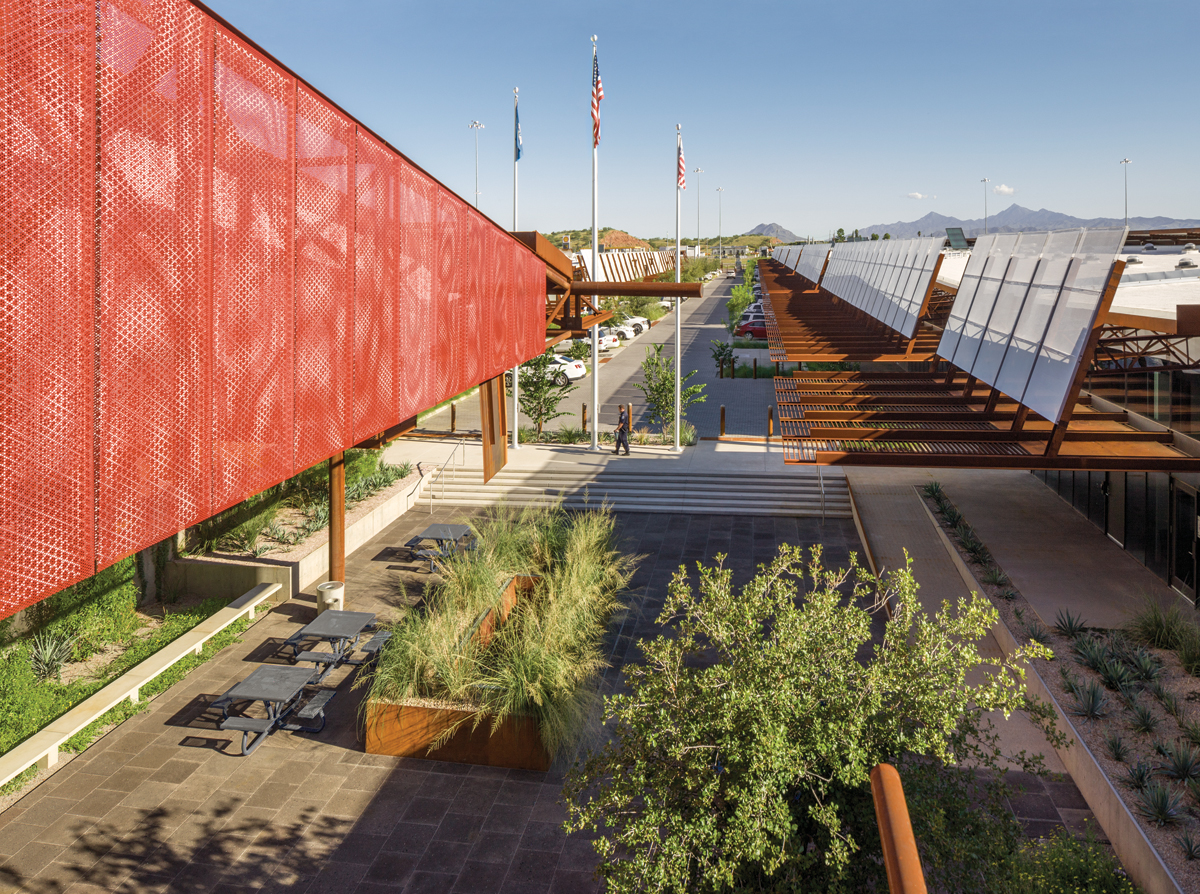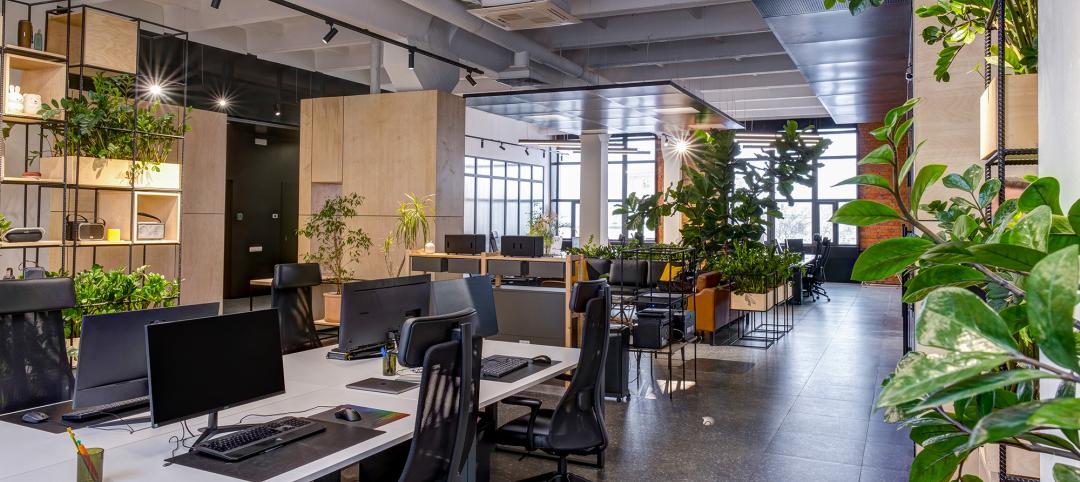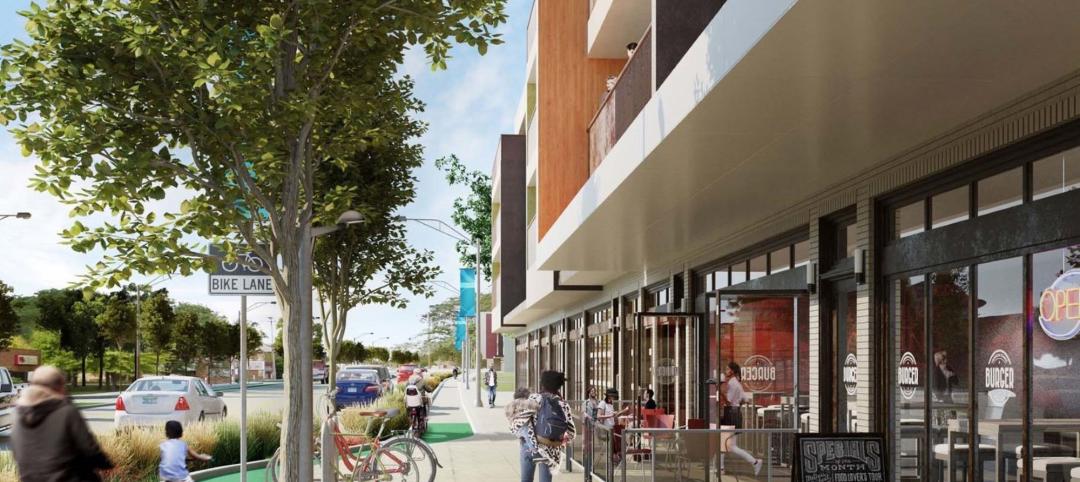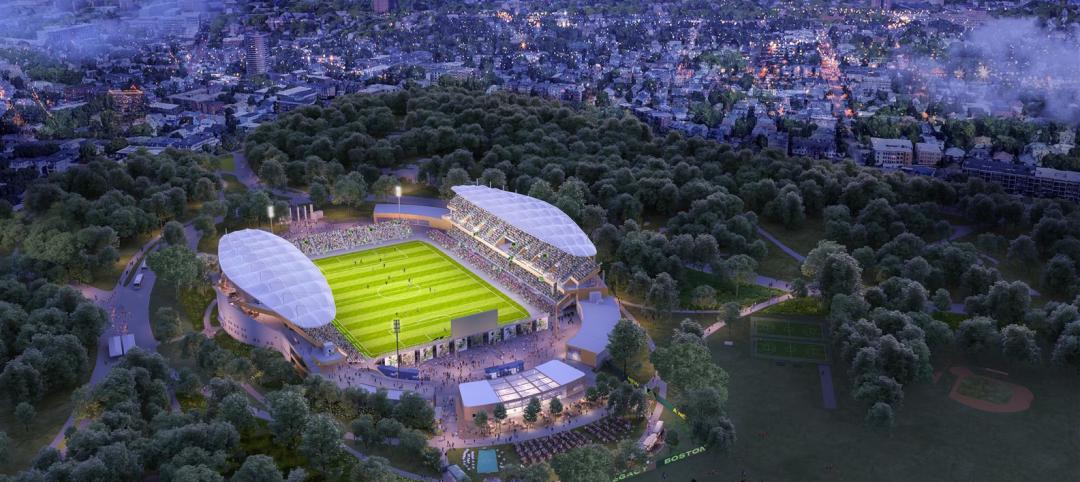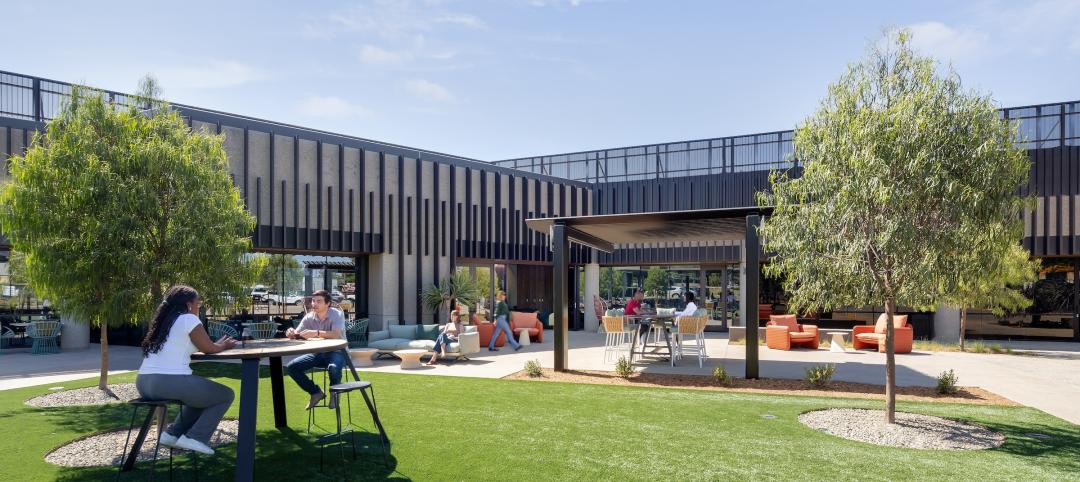Four billion pounds of fresh produce flow through the Mariposa Land Port of Entry, Nogales, Ariz., from Mexico every year. More than 300,000 trucks, nearly three million cars, and more than three million people enter the U.S. via this import-export gateway, which accounts for $30–35 billion a year in commerce.
The new $187 million port, designed by Jones Studio, Phoenix, for the U.S. General Services Administration, has more than doubled the capacity of the facility it replaced. The 55-acre site now has 14 processing lanes for cars, buses, and RVs; the old port had four. According to Paul Andrade, AIA, Project Executive for GSA Design & Construction Region 9, the 216,000-sf facility “will likely serve as a template for future port designs.”
The Building Team not only kept the port fully operational during nearly four years of construction, it shifted commercial processing facilities into earlier phases of the project; this enabled the primary tenant, Customs and Border Protection (CBP), to double commercial capacity three years ahead of project completion. The team further improved CBP’s efficiency by segregating the general public from commercial inspection operations.
PROJECT SUMMARY
SILVER AWARD
Mariposa Land Port of Entry
Nogales, Ariz.BUILDING TEAM
Submitting firm: Jones Studio, Inc. (architect)
Owner: U.S. General Services Administration
Structural: Bakkum Noelke Consulting Structural Engineers
Mechanical/plumbing: Associated Mechanical Engineers, PLLC
Electrical: Woodward Engineering, Inc.
GC: Hensel Phelps Construction Co.
CM: Heery InternationalGENERAL INFORMATION
Project size: 216,000 gsf
Construction cost: $187 million ($173.7 million from ARRA funds)
Construction period: October 2010 to August 2014
Delivery method: Design-bid-build
To speed up the construction schedule, the Building Team came up with a new way to pour slabs up against concrete tilt-up panels. The traditional way usually requires two pours; the team found a way to do it in one step.
The team redesigned the truck dock to increase capacity. In the old port, three dock spaces were needed to offload and reload a full semi-trailer. The team designed a deeper dock to allow for the entire contents of the trailer to be unloaded directly behind the vehicle.
In the midst of production, Homeland Security mandated a pilot program for traffic returning to Mexico. The team went into design-build mode and produced $10 million worth of work in less than a year to keep the original contract scope on schedule.
Other hallmarks of the project:
• 97% diversion of construction waste from landfill by contractor Hensel Phelps.
• 58% of subcontracts awarded to small business enterprises.
• 32% participation by women-owned businesses, vs. a baseline goal of 5%.
• LEED-NC (2.2) Gold. A million-gallon tank stores enough rainwater from the short rainy season to irrigate the landscape throughout the dry season.
The Mariposa POE now represents “the showcase design for southern border ports of entry,” says Tom Yearout, retired Deputy Director of CBP’s Tucson Field Office.
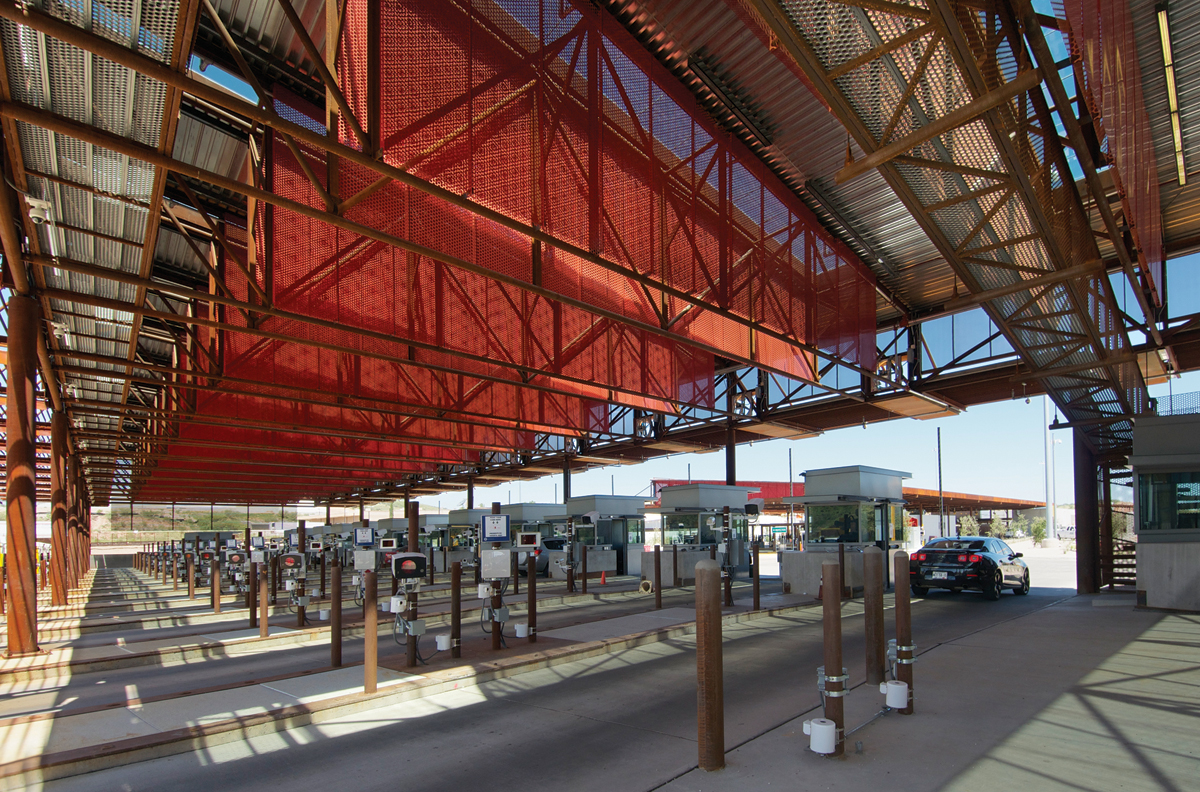 Vehicles await entry to the U.S. A Building Team led by designer Jones Studio and GC Hensel Phelps worked with Customs and Border Protection on an improved trench design that will provide easy access to service, modify, and replace high-tech scanning and processing equipment. The design has been recognized as a CBP Best Practice.
Vehicles await entry to the U.S. A Building Team led by designer Jones Studio and GC Hensel Phelps worked with Customs and Border Protection on an improved trench design that will provide easy access to service, modify, and replace high-tech scanning and processing equipment. The design has been recognized as a CBP Best Practice.
Related Stories
MFPRO+ New Projects | Oct 30, 2024
BIG’s One High Line finally reaches completion in New York City’s West Chelsea neighborhood
One High Line, a luxury residential project spanning a full city block in New York’s West Chelsea neighborhood, reached completion this summer following years of delays related to investor lawsuits.
Urban Planning | Oct 30, 2024
Bridging the gap: How early architect involvement can revolutionize a city’s capital improvement plans
Capital Improvement Plans (CIPs) typically span three to five years and outline future city projects and their costs. While they set the stage, the design and construction of these projects often extend beyond the CIP window, leading to a disconnect between the initial budget and evolving project scope. This can result in financial shortfalls, forcing cities to cut back on critical project features.
MFPRO+ New Projects | Oct 30, 2024
Luxury waterfront tower in Brooklyn features East River and Manhattan skyline views
Leasing recently began for The Dupont, a 41-story luxury rental property along the Brooklyn, N.Y., waterfront. Located within the 22-acre Greenpoint Landing, where it overlooks the newly constructed Newtown Barge Park, the high-rise features East River and Manhattan skyline views along with 20,000 sf of indoor and outdoor communal space.
Libraries | Oct 30, 2024
Reasons to reinvent the Midcentury academic library
DLR Group's Interior Design Leader Gretchen Holy, Assoc. IIDA, shares the idea that a designer's responsibility to embrace a library’s history, respect its past, and create an environment that will serve student populations for the next 100 years.
Resiliency | Oct 29, 2024
Climate change degrades buildings slowly but steadily
While natural disasters such as hurricanes and wildfires can destroy buildings in minutes, other factors exacerbated by climate change degrade buildings more slowly but still cause costly damage.
Office Buildings | Oct 29, 2024
Editorial call for Office Building project case studies
BD+C editors are looking to feature a roundup of office building projects for 2024, including office-to-residential conversions. Deadline for submission: December 6, 2024.
Healthcare Facilities | Oct 28, 2024
New surgical tower is largest addition to UNC Health campus in Chapel Hill
Construction on UNC Health’s North Carolina Surgical Hospital, the largest addition to the Chapel Hill campus since it was built in 1952, was recently completed. The seven-story, 375,000-sf structure houses 26 operating rooms, four of which are hybrid size to accommodate additional equipment and technology for newly developed procedures.
Multifamily Housing | Oct 28, 2024
A case for mid-rise: How multifamily housing can reshape our cities
Often referred to as “five-over-ones,” the mid-rise apartment type is typically comprised of five stories of apartments on top of a concrete “podium” of ground-floor retail. The main criticism of the “five-over-one” is that they are often too predictable.
Sports and Recreational Facilities | Oct 24, 2024
Stadium renovation plans unveiled for Boston’s National Women’s Soccer League
A city-owned 75-year-old stadium in Boston’s historic Franklin Park will be renovated for a new National Women’s Soccer League team. The park, designed by Fredrick Law Olmsted in the 1880s, is the home of White Stadium, which was built in 1949 and has since fallen into disrepair.
Laboratories | Oct 23, 2024
From sterile to stimulating: The rise of community-centric life sciences campuses
To distinguish their life sciences campuses, developers are partnering with architectural and design firms to reimagine life sciences facilities as vibrant, welcoming destinations. By emphasizing four key elements—wellness, collaboration, biophilic design, and community integration—they are setting their properties apart.


